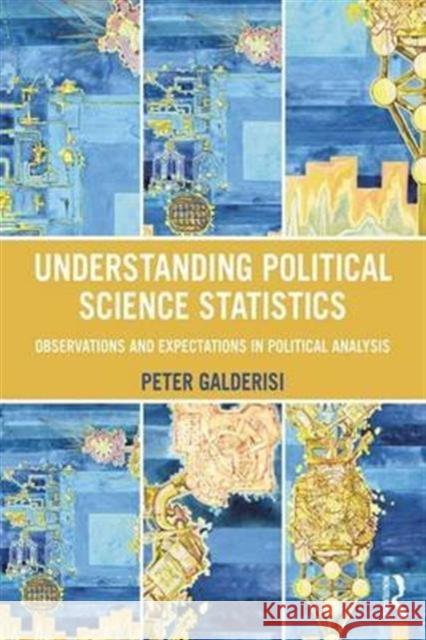Understanding Political Science Statistics: Observations and Expectations in Political Analysis » książka
Understanding Political Science Statistics: Observations and Expectations in Political Analysis
ISBN-13: 9781138130418 / Angielski / Twarda / 2015 / 340 str.
Understanding Political Science Statistics: Observations and Expectations in Political Analysis
ISBN-13: 9781138130418 / Angielski / Twarda / 2015 / 340 str.
(netto: 862,93 VAT: 5%)
Najniższa cena z 30 dni: 856,36
ok. 22 dni roboczych.
Darmowa dostawa!
In politics, you begin by asking theoretically interesting questions. Sometimes statistics can help answer those questions. When it comes to applied statistics, students shouldn t just learn a vast array of formula they need to learn the basic concepts of statistics as solutions to particular problems. Peter Galderisi demonstrates that statistics are a summary of how to answer the problem: learn the math but only after learning the concepts and methodological considerations that give it context. With this as a starting point, Understanding Political Science Statistics asks students to consider how to address a research problem conceptually before being led to the appropriate formula. Throughout, Galderisi looks at problems through a lens of "observations and expectations," which can be applied to myriad statistical techniques, both descriptive and inferential. This approach links the answers researchers get from their individual data analysis to the research designs and questions from which these analyses are derived. By emphasizing the underlying logic of statistical analysis for greater understanding and drawing on applications and examples from political science (including law), the book illustrates how students can apply statistical concepts and techniques in their own research, in future coursework, and simply as an informed consumer of numbers in public discourse. The following features help students master the material:
- Legal and Methodological sidebars highlight key concepts and provide applied examples on law, politics, and methodology;
- End-of-chapter exercises allow students to test their mastery of the basic concepts and techniques along the way;
- A Sample Solutions Guide provides worked-out answers for odd-numbered exercises, with all answers available in the Instructor s Manual;
- Key Terms are helpfully called out in both Marginal Definitions and a Glossary;
- A Companion Website (www.routledge.com/cw/galderisi) with further resources for both students and instructors;
- A diverse array of data sets include subsets of the ANES and Eurobarometer surveys; CCES; US Congressional district data; and a cross-national dataset with political, economic, and demographic variables; and
- Companion guides to SPSS and Stata walk students through the procedures for analysis and provide exercises that go hand-in-hand with online data sets.











